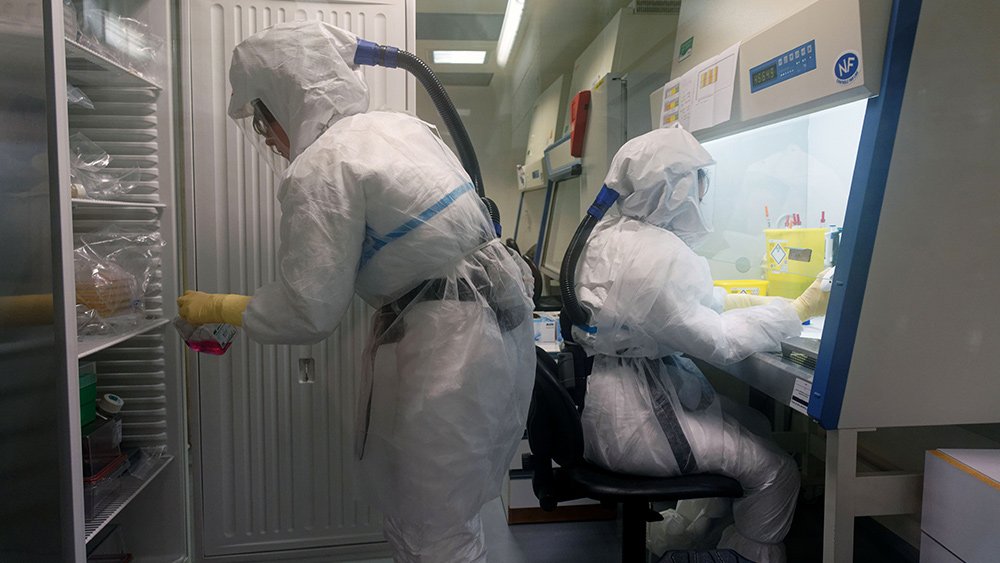Tampons, including “organic” brands, found to contain toxic PFAS (fluorine) chemicals
11/03/2022 / By Ethan Huff

A new report from the group Mamavation reveals that many popular tampon brands, including a few organic brands, are reportedly contaminated with detectable levels of fluorine in the form of PFAS (perfluoroalkyl and polyfluoroalkyl substances).
In partnership with EHN.org, Mamavation tested 23 different tampon products in a U.S. Environmental Protection Agency (EPA)-certified lab, five of which tested positive for PFAS at levels ranging from 19 parts per million (ppm) to 28 ppm.
The five brands in question, two of which are labeled as “organic,” include the following:
- Maxim Hygiene Organic Cotton Cardboard Applicator Tampons
- OrganYc Complete Protection Tampons (made with organic cotton)
- Playtex SPORT Regular & Super Tampons
- Tampax Cardboard Applicator Unscented Tampons
- Up & Up (Target Brand) Regular Tampons
The research was funded in part by EHN.org, while Pete Myers, chief scientist at Environmental Health Sciences, which publishes Environmental Health News, reviewed the findings before publishing.
The resulting report was part of a larger investigation into consumer products at large that contain PFAS, including sports clothing and makeup. (Related: Many fast-food wrappers are also loaded with deadly PFAS and other toxic chemicals.)
Many consumer products contain PFAS, EDCs, BPA and more
What makes PFAS and fluorine so noxious is that they fall into the category of “forever chemicals,” meaning they take a very long time, if ever, to decompose. Their accumulation inside the human body is linked to all sorts of health conditions including cancer and birth defects.
Keep in mind that PFAS represent just one class of chemicals among many that are found in tampons and other consumer products. Another is endocrine-disrupting chemicals (EDCs) such as phthalates and bisphenol-A, also known as BPA.
“We know more than enough about low-dose toxicities of PFAS compounds and other cited contaminants to be certain that detectable quantities in tampons are unjustifiable,” says Terrence Collins, Teresa Heinz Professor of Green Chemistry & Director of the Institute for Green Sciences at Carnegie Mellon University.
Other popular products that were found to contain PFAS include yoga pants, legging, and even “clean beauty” brands of makeup that are advertised as being safe and natural.
Even period underwear was found by the investigative team to contain PFAS indicators. Of the 17 pairs tested, 11 of them showed detectable levels of fluorine.
The health impacts of all this PFAS, especially in women’s sensitive areas, is still somewhat unknown. What we do know is that these persistent chemicals have the ability “to impact almost every organ of the body,” according to Linda S. Birnbaum, Scientist Emeritus and Former Director of the National Institute of Environmental Health Sciences and National Toxicology Program.
“The vagina is an incredibly vascular area and dermal exposure is often higher there than in other places of the body,” Birnbaum added in a statement to Mamavation.
One of the reasons why PFAS chemicals are used in consumer products like fast-food packaging and women’s hygiene products is because they help to prevent oils and liquids from seeping through. These chemicals act as a protective barrier, in other words.
PFAS are now an environmental concern as well, with hunters in some areas of the country having to avoid areas where PFAS contamination is highest.
“Everybody that’s hunted, it’s already in our systems,” said Joe Lefebvre, a former hunter from Maine, to a local news affiliate in his area.
“We’ve been eating bird, turkey, deer for years here. So everybody’s contaminated. There’s no question about it.”
Several of Lefebvre’s neighbors were tested and found to have high levels of PFAS in their systems. He is still personally waiting on his own results.
Want to keep up with the latest news about chemical toxins in consumer products? You can do so at ChemicalViolence.com.
Sources for this article include:
Submit a correction >>
Tagged Under:
chemicals, dangeorus, discoveries, feminine hygiene, fluorine, Organic, PFAS, poison, products, real investigations, research, Tampons, toxic ingredients, toxins, women's health
This article may contain statements that reflect the opinion of the author




















